
Rhodes University hosts Seshegopuo Linguistics Winter School
We are thrilled to announce a significant new initiative from the Department of Linguistics and Applied Language Studies at Rhodes University, in collaboration with Dr. Kristina Riedel from the Wits University Department of Linguistics: the second Seshegopuo Linguistics Winter School, taking place from 30 June to 4 July 2025.
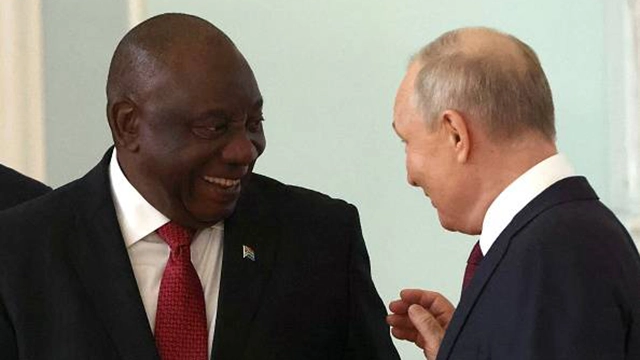
Ramaphosa: Dodging the bullets of Phala Phala and Putin - opinion
President Cyril Ramaphosa has been navigating turbulent waters for the past year but always seems to come through in the clear. Lately, he has dodged past the rugged rocks of Phala Phala and narrowly missed the cataclysmic vortex of Russia’s President Vladimir Putin.
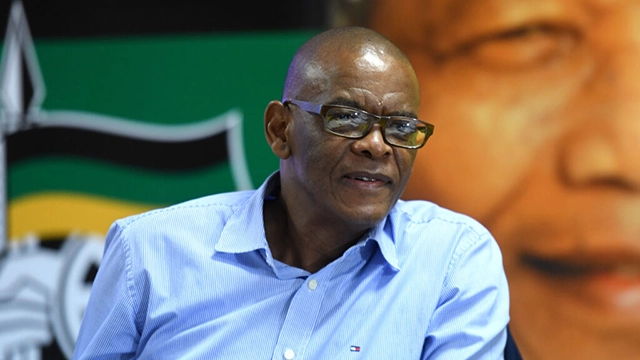
Magashule vs Mbalula: Icons of South Africa’s leadership malaise - opinion
How much significance should we read into Ace Magashule’s expulsion from the ANC, and will it have ripple effects on coalition possibilities for the 2024 elections? A look at June’s news coverage of the ruling party raises these questions, and reminds us of the deep moral gutter South African politics has descended into.
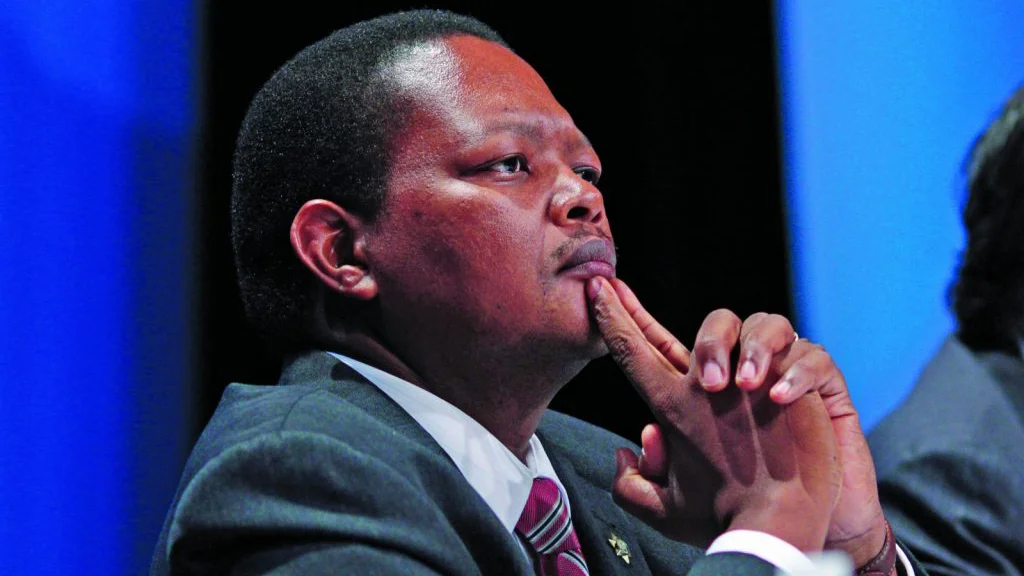
How Eskom’s ‘besieged’ execs talk to the public - opinion piece
“Besieged” is the word the Eskom’s former board chairperson Malegapuru Makgoba used to refer to the ailing power utility when he appeared before the standing committee on public accounts (Scopa) last month.
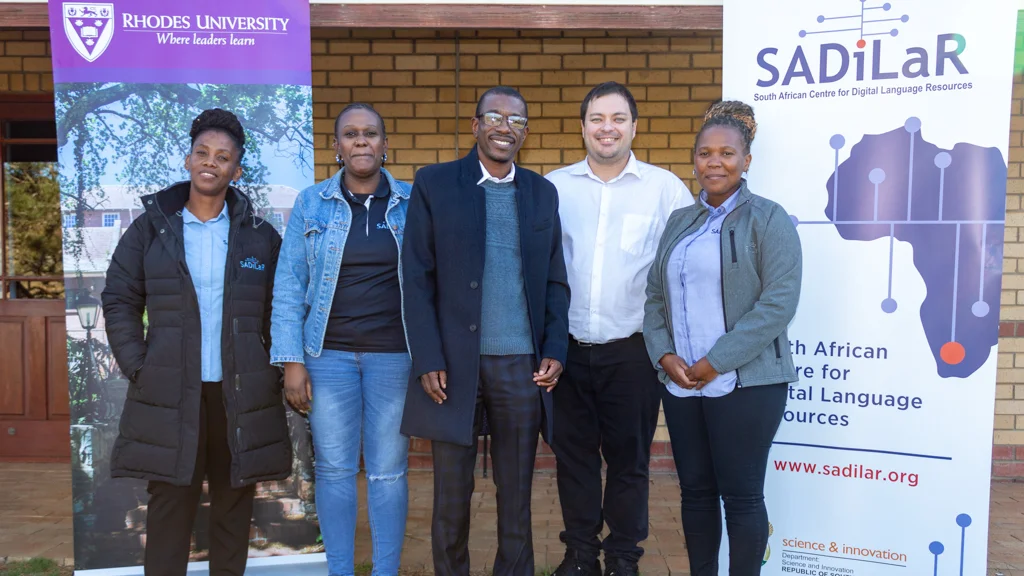
Rhodes University hosts Language Resources Audit
Rhodes University hosted the first sector-wide Language Resources Audit conducted by the South African Centre for Digital Language Resources (SADiLAR) at the Continuing Education Centre this week.

Ramaphosa scraped through 2022, but what will it take for South Africa to win in 2023?
If there was one person in South Africa all eyes were watching in 2022, it was Cyril Ramaphosa. His vertiginous swing in fortunes from almost resigning at the beginning of December to winning a second term as ANC president less than three weeks later left many of us with our hearts in our mouths.
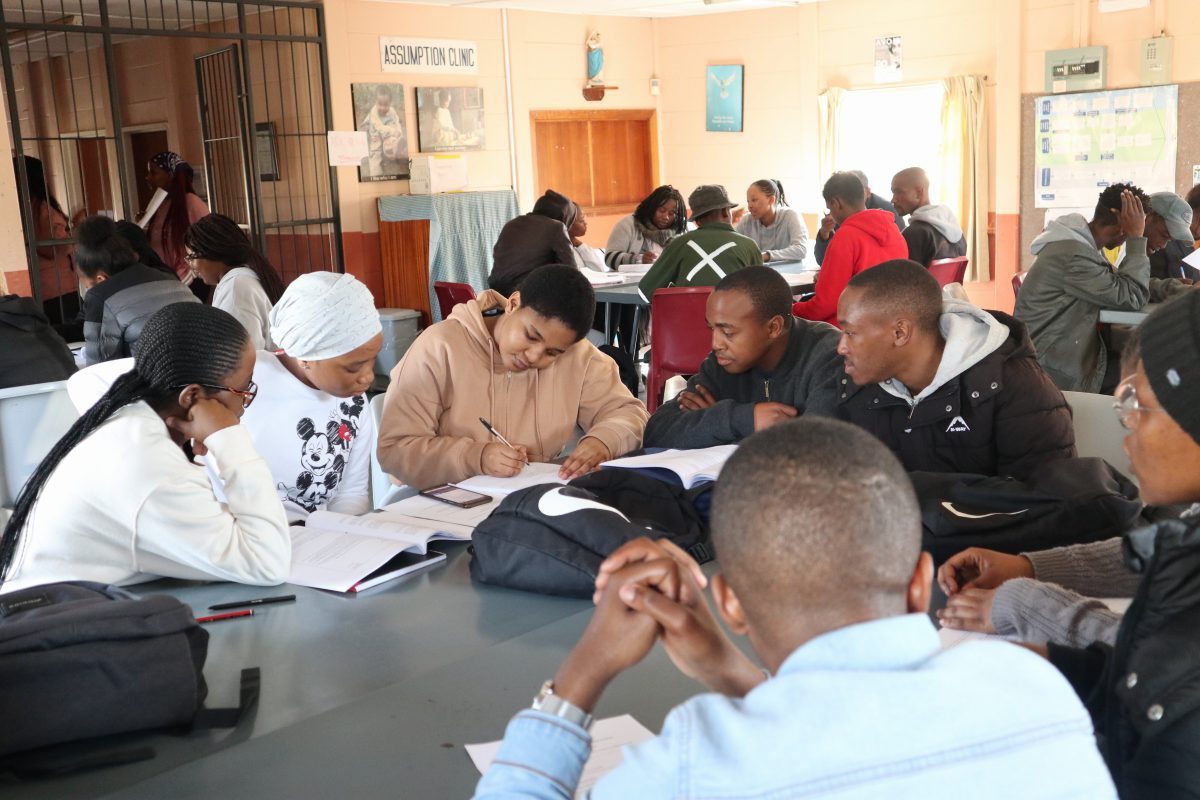
Knowledge and power at the ADC
The Assumption Development Centre provides a Second Chance Matric Programme and other programs that young adults can use to upskill themselves.

Eskom caught in a web of dysfunctionality
"Eskom” must be one of the most hated names in South Africa, a reputation that has only been entrenched after another run of load-shedding in May and indications of more to come as winter deepens.
.webp)
Ramaphosa: Reminded, lobbied and plotted against
President Cyril Ramaphosa has had a busy month, and the list of things that have occupied his mind includes much more than high-profile matters like ending the National State of Disaster.
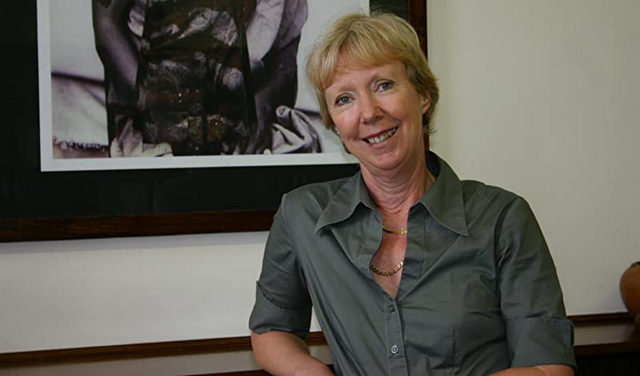
Rhodes University alumna’s empathy motivates her to write a book on obesity
A seed of an idea that emanated from her empathy about obesity, a growing problem world-wide, is what motivated a Rhodes University alumna to write an unusual and provocative debut novel on the topic.

Linguistic winds of change blow at Rhodes University
At the last Senate meeting, a request to change the name of the Department of English Language and Linguistics at Rhodes University was approved.
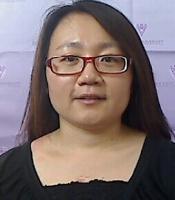
A coronavirus message of encouragement from China, in isiXhosa!
Rhodes Linguistics alumnus Dr Xiujie Ma, who is now teaching in China, has put together a message of encouragement for South Africans as we battle the Covid-19 pandemic, all in isiXhosa and isiZulu!
-180x120.jpg)
Congratulations to our RU Linguistics graduands!
Rhodes University's April graduation has been postponed due to the coronavirus pandemic, but our graduands have still graduated officially, and we are looking forward to celebrating in person with them in a few months' time!
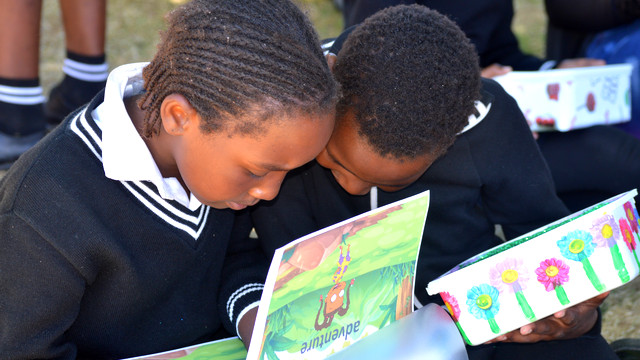
Linguistics service-learning module ends in gifts aplenty
Rhodes University English Language and Linguistics students handed over personal libraries to Samuel Ntsiko Primary School learners after their Linguistics and Community Service-Learning module recently came to an end.
Rhodes University hosts African Linguistics School
For the first time in the history of South Africa, the African Linguistics School (ALS) was hosted by Rhodes University from 01 July to 12 July 2019.
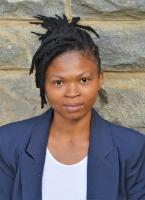
How the cultural familiarity of the stimulus and the urban/rural divide may influence storytelling in isiZulu L1 speaking children from KwaZulu-Natal
Rhodes University lecturer Mbali Jiyane gave a Departmental Research Seminar on her work on children's storytelling in KwaZulu-Natal on Tuesday 21 May 2019. It investigates the storytelling of eighty 10-12 year old isiZulu L1-speaking South African children.
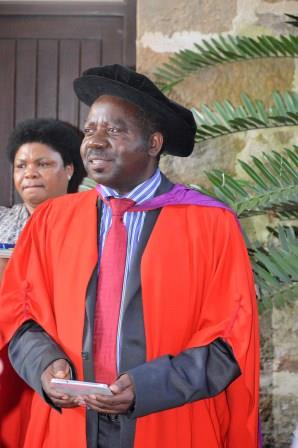
Three PhDs and three MAs: a record Graduation!
The Department of English Language and Linguistics graduated a record three PhDs in April 2019, as well as three MA students, two with distinction. We celebrated with a bumper Graduation Reception on Friday 12 April.

Agricultural activity: verbs of planting in Tafi
Mercy Bobuafor from the University of Ghana gave a Departmental Research Seminar on Tuesday 23 April which examined the conceptual semantics and the grammar of agricultural activity verbs pertaining to planting in Tafi, a Kwa, Ghana-Togo Mountain language.
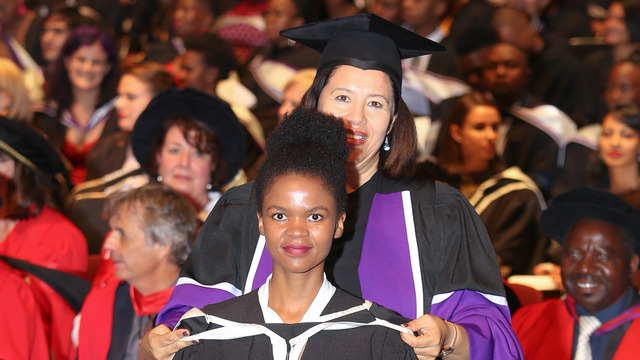
Giving language a universal voice: The journey to reviving, resuscitating and reigniting isiXhosa after 30 years
Hlumela Palesa Mkabile, a recent Masters in Linguistics graduate of Rhodes University, has opted to explore dynamic and versatile research about the Xhosa language in her thesis, which is the first of its kind in over 30 years.
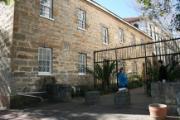
Two jobs in Linguistics available!
We're looking for two linguists to join our vibrant and collegial department. There are two job openings: one at lecturer / senior lecturer / associate professor level, and another at senior professor level only. Applications are due by 15 April.

A discourse of governance: Ideological positions in the inaugural of the Ghanaian fourth republic
Mellon visiting scholars Gabriel Opoku and Elijah A. Ayaawan presented a Departmental Research Seminar on Tuesday 5 March 2019 on Ghanaian presidents' inaugural addresses. The inaugural address has received a fair bit of scholarly attention due to the strength in the argument that it occupies an important position among discourses that can be termed political; and of course, the recognition that it performs an important political function within the state.

Tense in Selee
Visiting African Humanities Programme Scholar Yvonne Agbetsoamedo, from the University of Ghana, Legon, gave a Departmental Research Seminar on tense in Selee on Tuesday 19 March. Selee is a Kwa language spoken by about 12,000 inhabitants of three towns: Benua, Bume and Gbodome of Santrokofi in the newly created Oti Region of Ghana.
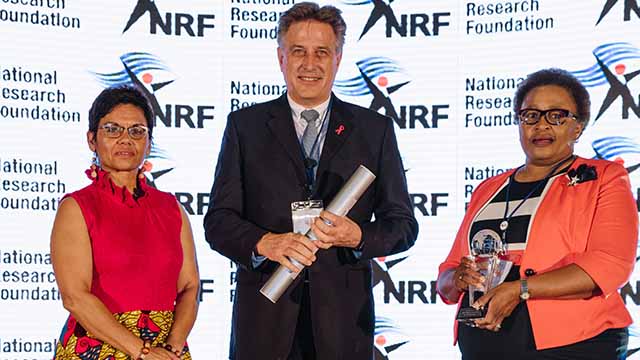
Rhodes Researcher attracts NRF P-Rating
Amongst those honoured at the National Research Foundation Gala Awards held in Bloemfontein on the evening of 14 September 2017 was Dr William Bennet of the Department of English Language and Linguistics at Rhodes University.
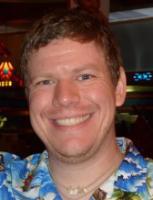
A ‘backwards’ sound change in Setswana
Rhodes linguist Will Bennett has discovered a sound change in some varieties of Setswana that seems to go against a trend found in languages around the world: in Setswana, the sound ‘s’ changes to ‘sh’ before back vowels like ‘o’. He described this change in a Departmental Research Seminar on Tuesday 25 October 2016.
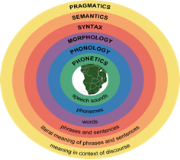
Less than one month till SAMWOP 4!
The fourth Southern African Microlinguistics Workshop (SAMWOP 4) takes place at Rhodes University from 27 to 29 November 2015. Visit the SAMWOP 4 website for more information: https://sites.google.com/site/samwop4/
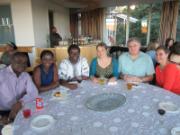
Investigating interrogatives in Igbo
In February, the Department of English Language and Linguistics hosted Jeremiah Nwankwegu, an African Humanities Project Fellow-in-Residence from Ebonyi State University in Nigeria. Nwankwegu is finishing his PhD thesis, investigating the syntax of interrogatives (question sentences) in different dialects of Igbo, a language spoken in Nigeria. He presented his work at a Linguistics Departmental Research Seminar on Tuesday 24 February.

Rhodes Linguistics welcomes new postgrads
A fresh group of new postgraduate students arrived at the Department of English Language and Linguistics at the beginning of February. An exciting week of activities welcomed new students to our scholarly community and gave them a taste of the kinds of research we do.

First year at Rhodes and choosing a Major?
Studying at university is an exhilarating experience. There are so many exciting possibilities to study – and you get to choose! But the choices can be intimidating: most people have never even heard of some of the subjects that can be studied. So it can be a perplexing task to choose your majors and other subjects.
Abigail Branford wins Branford Prize!
Abigail Branford has won the prize named after her grandfather, Bill Branford, the founding Professor and Head of the Department of English Language and Linguistics at Rhodes University. The Bill Branford Prize is awarded annually to the top English Language and Linguistics 3 student. This one-of-a-kind occasion is definitely a special cause for celebration.
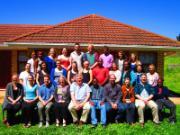
Hard work and great fun in Postgrad Week
The Department of English Language and Linguistics held its annual Postgrad Week from 20 to 24 October. Twenty-four Honours, Master’s and PhD students presented their research on topics ranging from South African Sign Language phonology to the language of Zimbabwean tourist brochures.
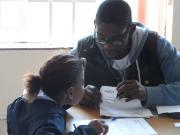
Wanted: Postgraduates to research literacy
The Department of English Language and Linguistics invites applications to the Postgraduate research programme: Strategic Early Literacy Imperative: Linguistic and social partnerships in Foundation-Phase Learning in African languages
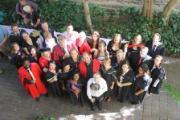
Linguists gear up for Postgrad Week
The Department of English Language and Linguistics is holding its annual Postgrad Week in just a few days’ time. This week is a special gathering of all the department’s postgraduate students, both those in attendance in Grahamstown and those who study from a distance. It is designed to give students opportunities to present their research, consult with their supervisors, meet with their research group and take their research projects on to the next step.
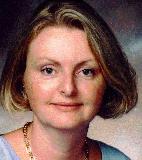
Identity representations in the 2010 FIFA World Cup
How were national, ‘racial’ and gender identities represented in the South African media around the time of the 2010 FIFA World Cup? Dr Sally Hunt has done some very interesting linguistic research to answer this question. She presented some of her findings at an English Language and Linguistics Departmental Research Seminar on Tuesday 7 October 2014.
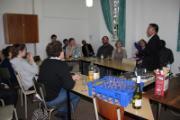
A visitor from China
During China Week at Rhodes University, the Department of English Language and Linguistics hosted a talk by Prof. Jun Zhang, a linguist from Jinan University in China.
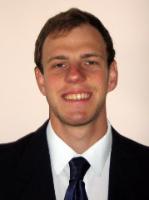
Political constellations: mapping media representations of political parties
Rhodes linguist Ian Siebörger spoke about his plans for a large-scale PhD study tracking the ways in which the media use language to position different political parties in a Departmental Research Seminar on Tuesday 16 September.
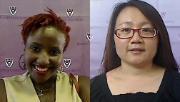
Postgrads investigate South African Sign Language, Chinese and isiXhosa
Two Rhodes Linguistics postgraduate students, Mikhaela Köhlo and Xiujie Ma, presented their research proposals to the department on Friday 5 September. Their two studies highlight the diversity and multilingual richness of the department’s research: Mikhaela is doing her Master’s on the phonology of South African Sign Language (SASL), and Xiujie is working towards a PhD comparing the syntax of Chinese and isiXhosa.
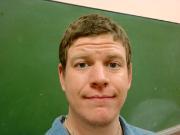
Phonology versus Morphology in isiXhosa
Rhodes linguist Will Bennett and his colleague Aaron Braver from Texas Tech University have discovered an interesting pattern in isiXhosa which could be the result of a phonological process (a sound change), or a result of historical change in isiXhosa morphemes. Will Bennett presented this pattern at a research seminar in the Department of English Language and Linguistics on Tuesday 2 September, 2014.
Conversations with patients in the seizure clinic
Linguistics can help in diagnosing patients who experience blackouts, according to research done by Dr Catherine Robson from the University of York. Dr Robson presented a research seminar about some of her conversation analysis work on Tuesday 26 August at Rhodes University's Department of English Language and Linguistics.
Danyel Hartley wins CUP Prize
Danyel Hartley was given the Cambridge University Press Prize at a surprise presentation in an English Language and Linguistics 2 lecture on Monday 1 September 2014. The prize is awarded each year to the English Language and Linguistics 1 student with the highest mark who proceeds to English Language and Linguistics 2.
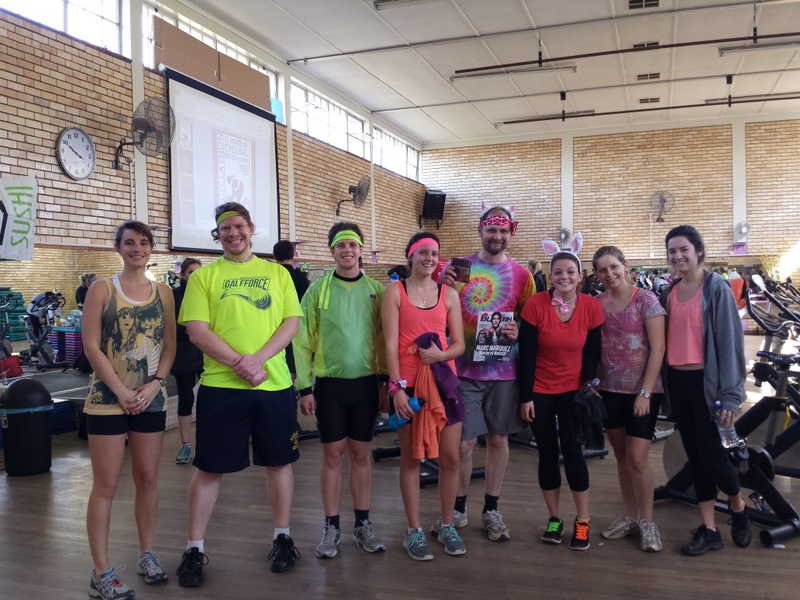
Bright linguists take part in cyclathon
A group of Rhodes Linguistics staff and postgraduate students took part in the Rhodes University Health Suite's annual charity Cyclathon on Friday 22 August. They joined the cyclathon for a 40-minute slot themed "Tight and Lumo", and dressed the part in some rather loud outfits!
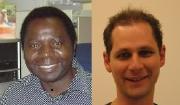
Language under the microscope
Two Rhodes linguists recently published their research in a special edition of the journal Southern African Linguistics and Applied Language Studies, entitled “Microlinguistics in Southern Africa”. As the title implies, this edition was dedicated to analyses of the smallest units of language: its sounds (phonetics and phonology), word-building processes (morphology) and sentence structure (syntax).

Rhodes academics leading in Linguistics
Two Rhodes academics, Prof. Mark de Vos and Dr Sally Hunt, were elected as leaders of southern Africa’s linguists this June. Mark de Vos is the new president of the Linguistics Society of Southern Africa (LSSA), and Sally Hunt is now the chair of the Southern African Applied Linguistics Association (SAALA).
Hurrah, Ling graduates are best!
Rhodes linguists celebrated a bumper graduation this April, with a sterling group of students achieving their BA, BA(Honours) and MA degrees, as well as one PhD. As is tradition, the department held a graduation reception the courtyard outside the Drostdy Barracks. It was a fantastic, festive affair, with the Linguistics 3 class of 2012 even serenading the assembled company with a song they wrote about their year. The refrain: Hurrah, Ling 3 is best!
Linguists share knowledge at Corpus Week
A wide variety of linguists are gathering at Rhodes University’s Department of English Language and Linguistics from 25 to 28 March 2013 for South Africa’s first Corpus Week. A corpus is a digitized collection of texts that can be used for many different types of research, from dictionary writing to picking out ideologies and analysing them critically. The aim of the week is to allow experienced corpus linguists and intrigued newcomers to share their knowledge with each other and encourage new research partnerships, according to Sally Hunt, the week’s convenor.
Bisset wins de Klerk prize
Congratulations to Susan Bisset for being awarded the Vivian de Klerk prize for 2013!

New phonology lecturer fascinated by Xhosa and Zulu
William Bennett, the newest addition to the Department of English Language and Linguistics staff, arrived from New Jersey last week. For him, coming to Rhodes is the latest stage in a growing love affair with South Africa and its languages.
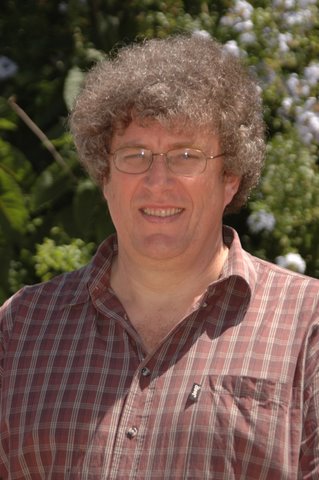
Exploring Fanagalo -- SA's mystery language
Fanagalo: proof that not only Boers, but Africans in general, can always make a plan. This language is famous for being used extensively in South African gold and diamond mines - poitjie pots of culture and communication - but what is the real deal behind this creative concoction of language?
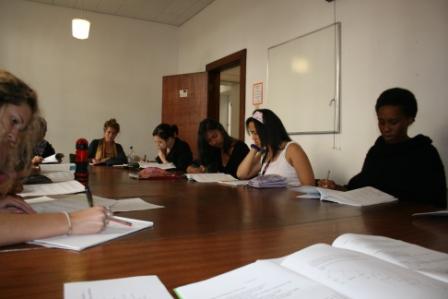
R1,5 million project to study literacy
Rhodes linguists Dr Mark de Vos and Kristin van der Merwe have been awarded a grant of R1,5 million over three years to study foundation phase literacy in African languages. The grant, which comes from the Rhodes University Council's Sandisa Imbewu fund, will be used to fund a post-doctoral research fellow and postgraduate students interested in solving one of South Africa's most pressing educational problems.

Heads and Specifiers in English
Mark de Vos from Rhodes Linguistics explored asymmetries in Specifier-Head word order in English at a Departmental Research Seminar held on Tuesday 16 August. He demonstrated that there is only mixed empirical evidence in English to back up the prediction of the Linear Correspondence Axiom (LCA) that specifiers universally precede their heads.
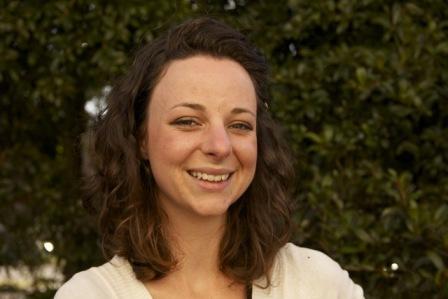
Prestigious travel bursary for postgrad student
Amy Richardson a hardworking Master’s student has been awarded Abe Bailey Travel Bursary, a three-week tour of the United Kingdom, all expenses paid. The bursary selects a single candidate from 16 South African Universities for the sole purpose of giving them a unique cultural and international experience.

The evolution of natural language syntax by natural selection
Rhodes linguist Mark de Vos delivered a talk at North-West University on Friday 24 August entitled "The evolution of natural language syntax by natural selection: optimization of the mental lexicon yields syntax for free". His talk presented an account of the evolution of human language by natural selection that focuses on the evolution of the lexicon. Here is a brief summary of what he said:
Doing business in many languages
At a Departmental Research Seminar on Tuesday 15 May, Rhodes Linguistics Master’s student Sanne Lauriks talked about her plans to compare the ways in which languages are used in two small businesses: one in Grahamstown and one in Amsterdam.
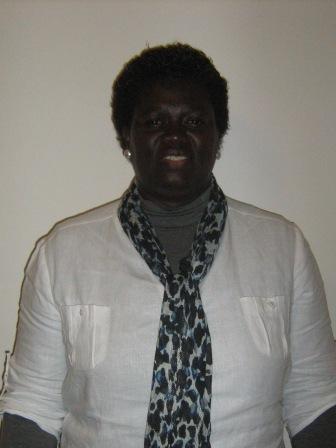
Being multilingual in Ghana
Dr Mercy Akrofi Ansah, a visiting scholar from the University of Ghana, took the Rhodes Linguistics department on a virtual tour of a small town in her country as she spoke about language choice in a multilingual community in a Departmental Research Seminar on Tuesday 8 May 2012.
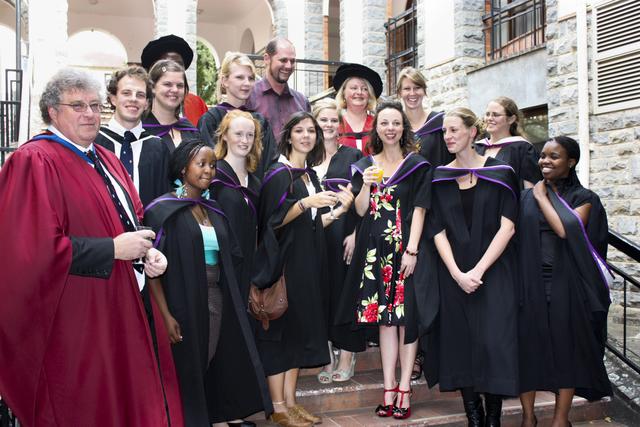
Linguistics graduates shine
The Department of English Language and Linguistics recently celebrated the graduation of its class of 2011. This year's crop of graduands, although relatively small, included some sparkling achievers.
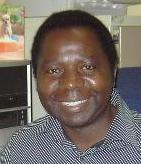
Putting words together in ciNsenga
Rhodes linguist Ron Simango presented a brief look at the grammar of ciNsenga at a Departmental Research Seminar on Tuesday 22 February. He showed how this language, from the border of Malawi and Zambia, handles subject marking, coordination and noun classes.

Endangered languages can be saved and strengthened
Associate Professor Ron Simango from Rhodes Linguistics spoke on SAFM on Sunday 19 February about the threat of language endangerment: the possibility that languages may die out and be replaced by more 'powerful' languages. Fortunately, he said, our languages can be preserved and strengthened if people use them in more domains of society.
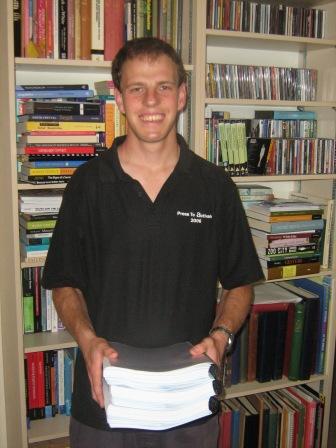
Ian Siebörger submits his MA thesis... and speaks on SAFM again
Rhodes Linguistics lecturer Ian Siebörger handed in his Master's thesis on language in Parliament on Monday 16 January, and has been asked to give another interview for SAFM's Word of Mouth programme on Sunday 22 January.

Mark de Vos speaks on Talk Radio 702 and 567 CapeTalk
Dr Mark de Vos was interviewed on Talk Radio 702 and 567 CapeTalk on Tuesday 23 November, on the topic of the meanings of words, especially taboo words.
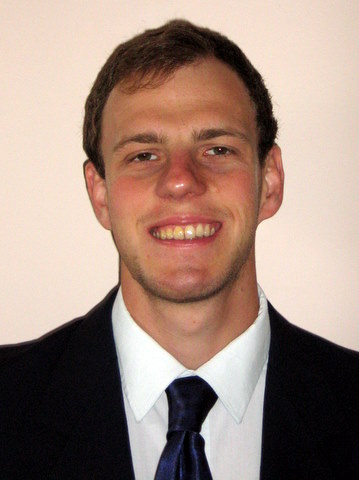
Ian Siebörger to speak on SAFM again
Rhodes linguist Ian Siebörger has been asked to give an interview on SAFM again on Sunday 27 November from 1:30 to 2:00pm.

Plagiarism and self-plagiarism
Dr Mark de Vos from Rhodes Linguistics gave a paper at an EDUCATION DIALOGUES panel discussion on plagiarism held at the Rhodes University Environmental Education Learning Resource Centre on Wednesday 19 October. A full copy of his paper is available below: I broached the issue of plagiarism with a philosophically inclined friend of mine a few weeks ago. His response was quite blunt: it’s a legal issue; let the lawyers sort it out. I’d like to argue against this view, that leaving it to others (especially lawyers) is an abdication of the defence of academic freedom and that we (and Rhodes as an institution) should be taking the high ground before others do.

Ian Siebörger to speak on SAFM
Rhodes Linguistics junior lecturer Ian Siebörger will be interviewed on SAFM's "Word of Mouth" feature on language on Sunday 6 November from 1:30 to 2:00pm.
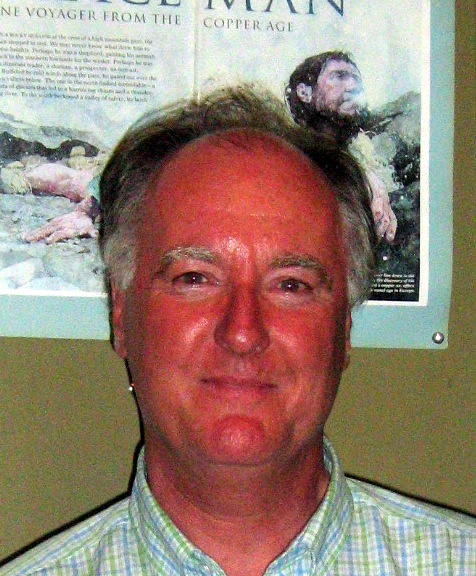
How Standard English got that way
Most people treat the rules of Standard English as though they dropped down out of the sky. In a special departmental research seminar on Tuesday 1 November, Prof. Raymond Hickey, an accomplished visiting linguist from the University of Duisburg and Essen in Germany, showed how these standards were constructed by a few rival lexicographers and grammarians in the 18th century.
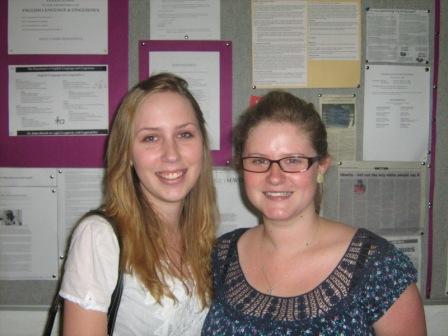
On pop music lyrics and real estate adverts
At the last Rhodes Linguistics Honours Research seminar for 2011, two students presented intriguing analyses of two very different types of text. Lynn Nowers compared pop music lyrics from 1960 with some from 2010 to find out how much they had changed in the way they portrayed gender relations. Then Tracy Beangstrom delved into the evaluative language used in real estate agency adverts, comparing two competing real estate agencies in Grahamstown. Both their studies revealed some fascinating (but not always reassuring) insights into trends in discourse today.
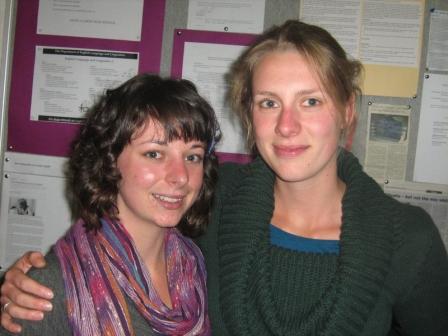
Politics and positioning at Honours Seminar
Euphemisms in parliament and insults at an anti-rape protest were the topic of discussion at the second in a series of Rhodes Linguistics Honours Research Seminars, on Tuesday 4 October. With such a strong focus on evaluative language and its links with broader society, the seminar was an intriguing window into what is happening in South African political discourse today.

Sally Hunt gives workshops at University of the Western Cape
The combination of Corpus Linguistics and Critical Discourse Analysis is a relatively new, and very exciting, development in linguistics. Rhodes Linguistics lecturer Sally Hunt went to the University of the Western Cape during the September vac to give a workshop to their post graduate students and staff on using corpora in ideological analysis.

Sally Hunt gives workshops at University of the Western Cape
The combination of Corpus Linguistics and Critical Discourse Analysis is a relatively new, and very exciting, development in linguistics. Rhodes Linguistics lecturer Sally Hunt went to the University of the Western Cape during the September vac to give a workshop to their post graduate students and staff on using corpora in ideological analysis.
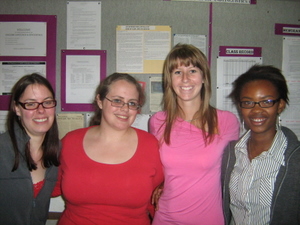
Honours students scintillate at seminar
Four Rhodes Linguistics students dazzled the department with their research at the first of two Honours research seminars, held on Tuesday 27 October. The presentations centred on two topics, the language of evaluation and agreement in syntax, and gave students a chance to get feedback on their work before they hand in their year-long research reports in a few weeks’ time. Each presentation was given with great vigour and spiced with a good dose of humour, making the two-hour seminar a delight to attend.
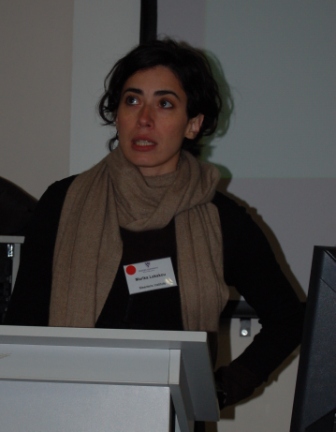
Syntactic innovation in Europe
Linguists from Europe are creating a common Internet search engine that will give users access to numerous databases helping them to compare the structures of languages in Europe. This is one of the goals of the European Dialect Syntax project (Edisyn), which Marika Lekakou from the Netherlands introduced to South African linguists at a special talk on Monday 27 June at Interactions and Interfaces, the linguistics conference being hosted at Rhodes. Lekakou is a post-doctoral researcher at the Meertens Institute in the Netherlands.
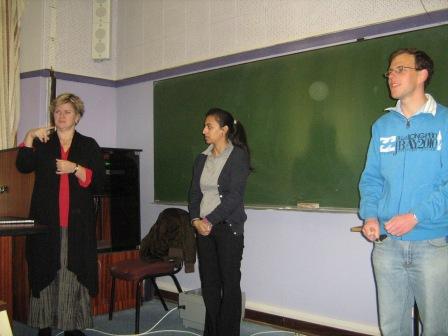
Signing their way to a better future
The Rhodes Linguistics 2 class had an exciting encounter with South African Sign Language (SASL) during a 12-day visit by Kirsty Maclons and Atiyah Asmal, two Sign Language teachers from Johannesburg and Cape Town. Their visit began with a special guest lecture by Atiyah Asmal and Hilda Mbetha, the Eastern Cape chairperson of DeafSA.
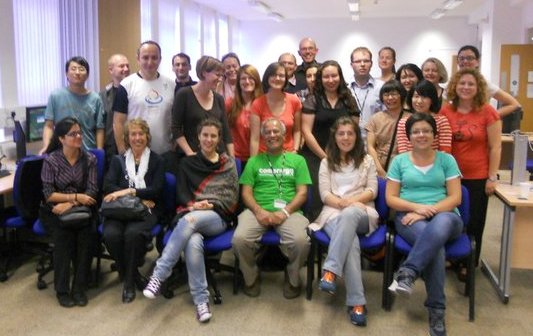
Sally Hunt explores Corpus Ling in the UK
Sally Hunt, a Rhodes linguistics lecturer, has just returned from a busy visit to the UK where she attended a conference and a week-long summer school, both on Corpus Linguistics.

Heads and Specifiers in English
Mark de Vos from Rhodes Linguistics explored asymmetries in Specifier-Head word order in English at a Departmental Research Seminar held on Tuesday 16 August. He demonstrated that there is only mixed empirical evidence in English to back up the prediction of the Linear Correspondence Axiom (LCA) that specifiers universally precede their heads.

Clashing mindsets in Parliament
Civil servants from government departments and state-owned entities are often asked to make presentations in parliament. This is one of the ways in which parliament does its job of overseeing government. Ian Sieborger from the Rhodes Linguistics department has found that these presentations can be filled with misunderstandings and tension.
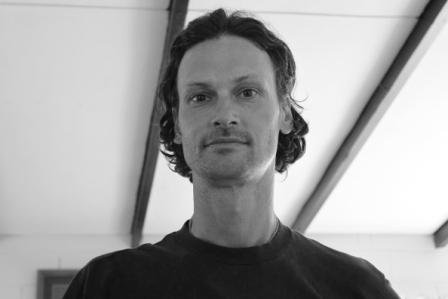
Mzansi jumps into the dictionary
The department's first Departmental Research Seminar (DRS) for the term on Tuesday 2 August, featured Richard Bowker, associate editor from the Dictionary Unit for South African English (DSAE).
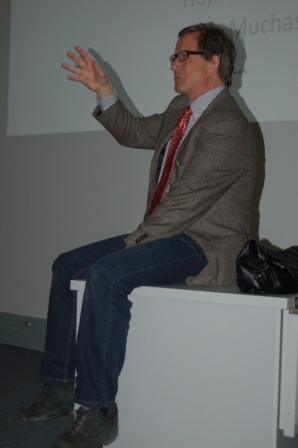
Diversity on everyone's lips
“Language and Linguistics, with their sensitivities to language, culture and context and issues of social inclusion and exclusion, are well-positioned to help our societies and also our universities to advance social justice and more inclusive social and academic cultures,” Dr Saleem Badat, the Vice Chancellor of Rhodes University said in opening Interactions and Interfaces, a conference about language being hosted by the university;s Department of English Language and Linguist
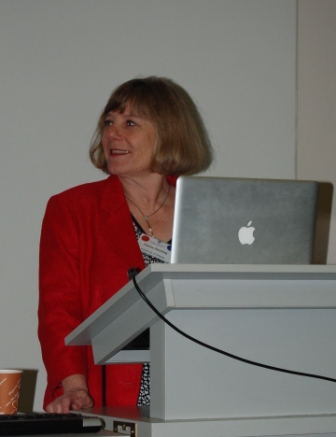
The real social network
“The real social network is not Facebook; it’s face-to-face,” is what the University of Alberta’s Tracey Derwing had to say in her keynote address on Monday 27 June at Interactions and Interfaces, a conference about language held at Rhodes. Her paper talked about how accents amongst other things affect a foreign speaker’s ability to learn a second language, and how face-to-face interaction can help. Derwing firstly discussed judgements made about people because of
Narrative interactions
Masako is a Japanese woman who found community – and a new husband – in the process of learning English after she immigrated to New Zealand. Gert, an Afrikaans financial advisor who also moved to New Zealand, found that his life changed far less in his new setting. These stories were told in a talk about language learners' stories by Dr Gary Barkhuizen, at Interactions and Interfaces, a conference about language hosted at Rhodes University. Barkhuizen, the th
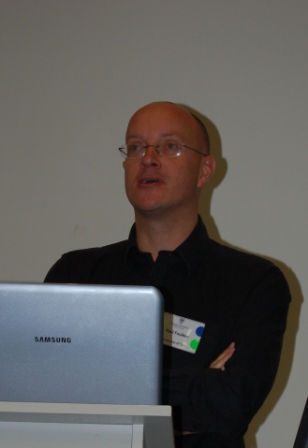
Things you can('t) tell from a criminal's voice
On TV series like 24 and Law and Order, it's not unusual to see detectives whip a recording of a suspected criminal's voice over to the sound lab, and half an hour later get the message “we have a match”, confirming that the suspect is guilty. In a keynote address on the final day of Interactions and Interfaces, a conference about language held at Rhodes University, forensic linguist Paul Foulkes stressed the fact that it is not always so easy to analyse voice recordings, but evidence from linguistic experts can still be extremely useful in criminal investigations. Foulkes is from the University of York in the United Kingdom and also wo